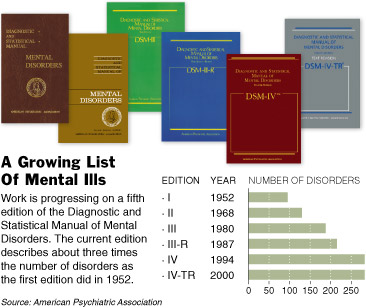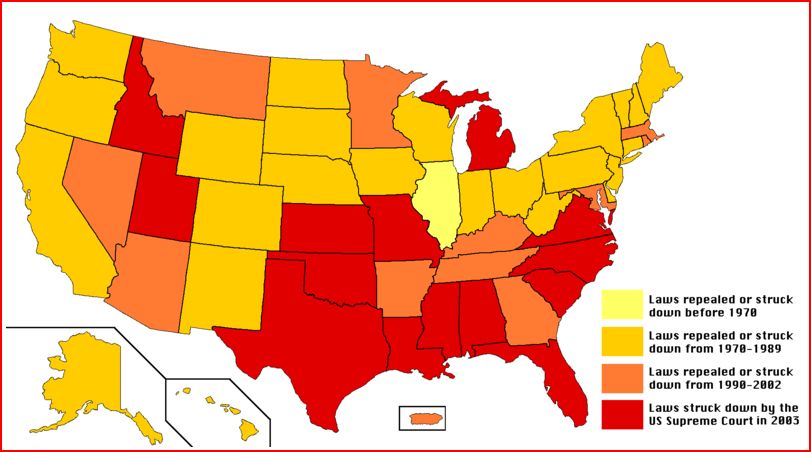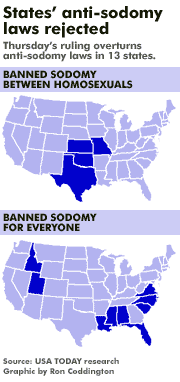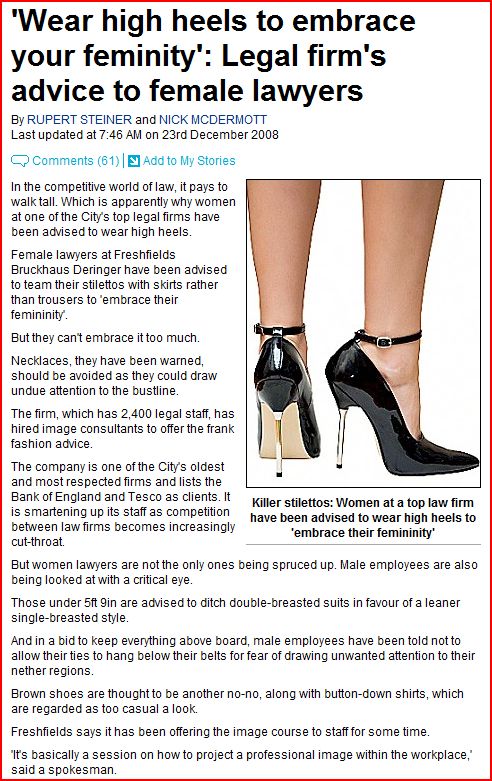The New York Times recently published an article on the evolving Diagnostic and Statistical Manual of Mental Disorders (DSM). The DSM is the official source for psychologists who are diagnosing patients with mental disorders. The article points out that the number of disorders in the manual has more than doubled since the 1950s:

Hypothesis One: The DSM reflects an increasingly sophisticated and exhuastive compendium of all possible mental disorders.
Hypothesis Two: More psychological disorders = more people diagnosed with mental disorders = more money is siphoned off to hospitals, treatment centers, drug companies, mental health professionals, social workers, school counselors, etc. (Scientists who are currently working on the next version of the DSM have agreed to restrict their income from drug makes to $10,000 a year or less.)
Hypothesis Three: We are an increasingly rationalized society and all things are becoming increasingly listed, compiled, organized, and annotated.
Hypothesis Four: What is considered a “problem” depends on the social context. (“Homosexuality” used to be in the DSM, but it isn’t any longer.) Perhaps a shift in the last 50 years has created a social context that is less tolerant of difference, more insistent upon happiness, or requires a more compliant citizen.
Hypothesis Five: Grassroots activists get together and lobby scientists to include disorders in the DSM so that they can raise awareness and money for research.
What do you think?
Thanks to Francisco for pointing me to this article!



